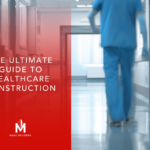What to Look For in a Construction Proposal
If you’re not familiar with the contractor, the construction bid proposal will provide you with most of the information you need to make the right decision.
Details on Pricing
While not the ultimate deciding factor, the price is another important factor, but not for the reasons you may be thinking. Instead of seeing how high or low the contractor is bidding, it’s critical to see how the price is presented, especially to see how the budget is broken down and allocated. While there are some indications in the overall price itself, that can give you a feel for how professional the contractor is and how knowledgeable they are about the project. For instance, a bid that’s far too low might indicate that they don’t have much experience or are padding the budget in other ways, like through change orders. It might also mean that they are missing some portion of the scope of work, which could create conflicts and legal issues down the road. On the other hand, a bid that’s far too high might not fit into your budget for the project and can also indicate that the contractor doesn’t understand the project.
Nonetheless, the more accurate a bid is regarding price, the better chances the firm understands the scope of the project. For instance, is there a general line item for “light fixtures” or is there something more specific like “45 wall-mounted light fixtures”? While you should always evaluate the number and specifics they are proposing; an experienced firm will generally be more specific in their bid.
No matter what the price is in the construction proposal, do your diligence to find out the why when making your decision.
Understanding of the Scope of Work
The way that a bid presents information is a good indication of the company and their understanding of the project. The construction proposal should illustrate that the company grasps the scope of work for this project. But the level of detail depends on a few things. Was the GC furnished with comprehensive plans, drawings, specifications, and scope of work prior to bidding? Not every project has that level of information available initially, so those things should be considered when reviewing the proposals.
(Almost) Error Free
Some contractors may not have the aptitude for excellent business writing. That might be fine if they are precise in what’s included in their final estimate, but if the proposal is chalk full of errors and omissions, this might be a good sign they’re not the one for you.
The actual construction proposal can give you a firm grasp of the project specifics and professionalism overall. The price will often give you a good indication of the type of materials they use, man hours they estimate, and their experience in the industry. While these two factors are essential, use your assessment of their written proposal as a sort of introduction. Don’t make your decision based solely on the professionalism of the proposal itself. Nonetheless, if you see a lot of errors, dive deeper to find out why before making the final decision.
Remember the power of 3
Receiving at least 3 bids from contractors is beneficial because they can provide you with enough options to get the expertise and quality you need. If you have less than 3 bids, you might not have enough to compare. Then, with too many bids, you may have so much information to compare that you aren’t able to make a selection as easily because you are trying to evaluate many possible partners. From feedback from our customers, 3 seems like the right balance.
Perform site walks
Another strategy you can use is performing site walks with contractors during your bidding process. Doing this can help you learn more about the different nuances they notice while on-site and may help make your cost estimation more accurate. You can also use this time to help you get to know more about each potential contractor on a deeper level. This can be especially useful if you’re looking for a partner who understands the unique nuances of your property or industry.
Engage in clarifying conversations
Once all of your bids have been submitted and you’ve begun reviewing them, you can create a list of questions you have for each bidding contractor. With your list of questions, you can schedule meetings with each bidder to make sure you understand the quote and their rationale around how they got to the price. You can also use this time to ensure the contractor has answered all of your questions. By doing this, you can glean all the information and clarification you need to make your final selection.
Compare Apples to Apples
Regardless of how specific you are, there is a chance that not all construction companies will interpret the bid documents in the same way. For example, one firm may choose a high-quality, durable carpet that will last several years for your corridors, whereas another firm may choose a lower-quality carpet that simply won’t stand up to the foot traffic in that area. While the latter firm has a lower price, that price will end up going up during the project as they must add the more expensive carpet.
These changes can stack up quickly, and very soon, the lowest bidder can end up being one of the more expensive options.
How do you avoid this?
To get a true feel of which bid is the most accurate, you’ll have to take a deep look at the selections they’ve made to ensure that they match up with what you had in mind. While the most thorough bid may not be the cheapest, it is the most accurate depiction of what the project will actually end up costing you. It can also save you plenty of headaches and change orders down the road.



